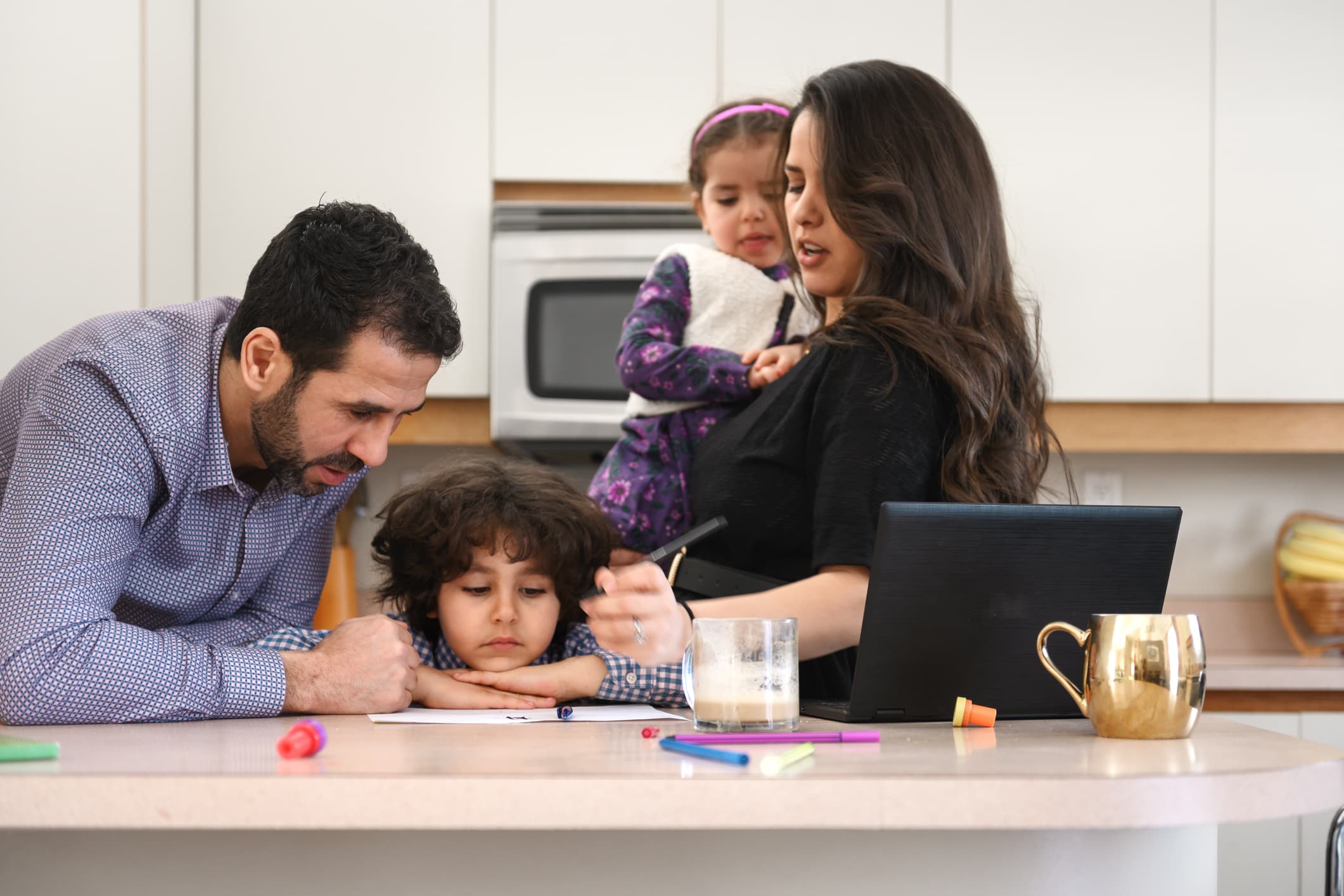So far, two monthly payments totaling $30 billion have gone out to American families with kids through the new enhanced child tax credit benefit.
For families that have eligible children but haven’t signed up — likely those that don’t traditionally file a tax return — there is still time to enroll and receive monthly payments.
In fact, the remaining payments will be larger than if someone had signed up before they began in July.
More from Invest in You:
How to navigate the child tax credit payments process
Has the 4-day workweek’s time come? Some predict it will catch on
Child tax credit payments will help offset loss of pandemic programs
That’s because the monthly money is an advance on a 2021 tax credit, half to be delivered this year and the rest to come when families file their taxes next year. The IRS said it will try to deliver the entire first half of the credit to families this year even if they sign up late, splitting the money among fewer, larger monthly checks.
“Even if parents haven’t already gotten the payment and they’re eligible for it, it’s not too late to sign up,” said Ashley Burnside, a policy analyst at the Center for Law and Social Policy. “They can use the IRS portal, that’s still an option.”
How it works
The American Rescue Plan passed in March expanded the existing child tax credit, adding advance monthly payments and increasing the benefit to $3,000 from $2,000 with a $600 bonus for kids under the age of 6 for the 2021 tax year.
For a family with two children aged 5 and 7 eligible for the full credit, the amount they’d receive is $6,600 ($3,000 for the 7-year-old plus $3,600 for the 5-year-old.)
If they filed a tax return in 2019 or 2020 and had direct deposit, the family started receiving the first $3,300 of the credit in six monthly payments of $550 that will last from July to December.
But if the same family doesn’t traditionally file taxes because they don’t earn enough, they would need to sign up to get the monthly payments via the IRS non-filer tool. If the family missed the July payment but signed up in August — as about 1 million families did — they’d still get $3,300 before December.
“This means that the total payment will be spread over five months, rather than six, making each monthly payment larger,” the IRS said in an Aug. 13 statement. “For these families, each payment is up to $360 per month for each child under age 6 and up to $300 per month for each child ages 6 through 17.”
As each month passes, families who just signed up will get slightly larger payments as the IRS works to make sure they get the first half of the credit ahead of tax time.
Time limits
Of course, there may be a limited amount of time left for families to sign up for the payments. The non-filer portal will be open through Oct. 15, 2021, according to the IRS.
The U.S. Department of the Treasury, meanwhile, is in the process of expanding sign-up options for the credit and has not set a definitive deadline, according to an official.
If a family fails to sign up for the advance payments, they will still be able to claim the entire credit but will have to file a 2021 tax return to do so. Even those who usually do not file taxes because they don’t make enough money can get the credit — the enhanced version was made fully refundable to ensure it reaches the most vulnerable families.
Still, experts say that everyone with an eligible child should sign up as soon as they are able, unless they are part of a family that knows they want to opt out and receive the benefit in a lump sum next year.
Roughly 4 million children are at risk of missing out on the monthly payments because their families don’t file tax returns, according to a report from the Center on Budget and Policy Priorities.
After just one check, data from the U.S. Census Bureau showed that financial instability fell, along with food insecurity for households with children. Financial anxiety also decreased for many families.
“We would hate for money to be left on the table when people are hungry, when people have housing insecurities, food insecurities,” said Otis Rolley, senior vice president of the U.S. equity and economic opportunity initiative at the Rockefeller Foundation.
Rolley said one reason some people don’t sign up is because they just don’t know about the programs that they are eligible for.
SIGN UP: Money 101 is an 8-week learning course to financial freedom, delivered weekly to your inbox.
CHECK OUT: How to make money with creative side hustles, from people who earn thousands on sites like Etsy and Twitch via Grow with Acorns+CNBC.
Disclosure: NBCUniversal and Comcast Ventures are investors in Acorns.
